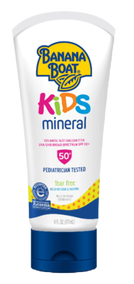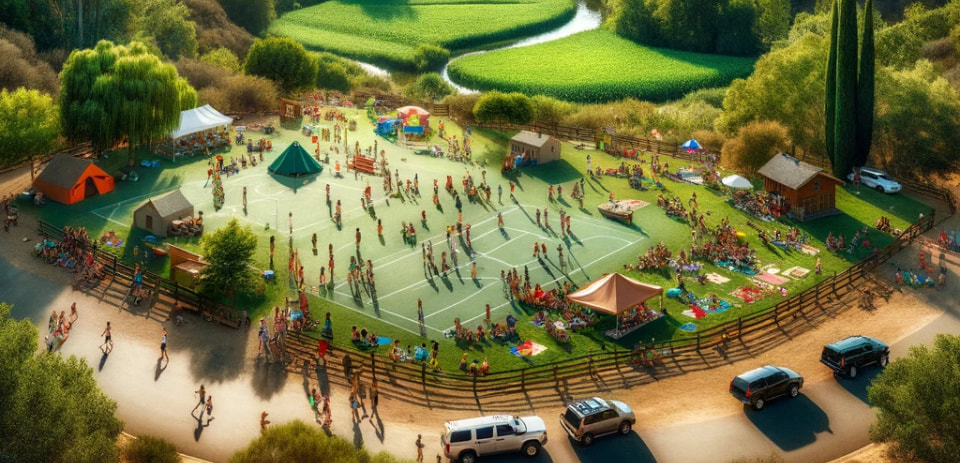|
As the days get longer and the school year comes to a close, many parents are turning their attention to the exciting prospect of summer camp. Whether your child is a first-time camper or a seasoned pro, preparing them for the adventure ahead is crucial for a successful and memorable experience. Here's a comprehensive guide to ensure your child is fully prepared for their summer camp adventure.
Understanding the Camp Experience Start by discussing what summer camp will be like. Talk about the activities, the daily schedule, and what a typical day at camp might look like. If possible, visit the camp beforehand or look at pictures online to make the unknown a bit more familiar. Building Excitement and Addressing Anxieties Encourage your child to express both their excitement and their fears. Address concerns with positivity and assurance. Reading books or watching movies about summer camp can also help build excitement while easing worries. Packing the Essentials Packing is a critical part of the prep process. Involve your child in this task to give them a sense of control and to ensure they know what they have packed. Here's a basic list to get started:
[Kids Summer Camp Essentials] Health and Safety Ensure all medical forms are filled out accurately. Discuss any allergies or health concerns with the camp staff beforehand. Pack a small first aid kit and any necessary medications with clear instructions. Staying in Touch Discuss with your child how often and through what means you'll communicate. Some camps encourage letter writing, while others may allow occasional phone calls or emails. Practicing Independence Camp is a great time for kids to practice independence. Encourage them to make small decisions, like choosing their clothes or helping pack their bag. Discuss the importance of responsibility, like keeping track of their belongings. Setting Realistic Expectations Discuss that while camp is a lot of fun, it's okay to have moments of homesickness or discomfort. Encourage them to talk to a counselor or friend when they have these feelings. Post-Camp Follow-Up After camp, take the time to talk about the experience. What did they enjoy? What did they learn? This can be a great way for your child to reflect on their growth and for you to understand more about their experience. Preparing your child for summer camp involves practical steps and emotional support. By taking the time to go through these steps, you're setting the stage for a summer filled with growth, learning, and fun. Remember, each child's needs and concerns are unique, so tailor your preparations accordingly. Here's to a fantastic summer camp adventure!
0 Comments
As the summer season approaches, parents across the country are preparing to send their children off to enjoy the enriching experience of summer camp. Amidst the excitement of packing and planning, there's one crucial item that must not be overlooked: sunscreen. Let's take a closer look into the pivotal role sunscreen plays in ensuring your child's skin is shielded from harmful sun rays while they engage in outdoor activities, and provide comprehensive guidance on choosing the best product to safeguard their health. The Science Behind Sunscreen Before we dive into the specifics of sunscreen selection and application, it's vital to understand the science that makes sunscreen an indispensable ally against the sun. The sun emits two types of harmful rays – UVA and UVB. UVA rays penetrate deep into the skin, leading to premature aging, while UVB rays are responsible for sunburn. Sunscreen acts as a barrier, absorbing or reflecting these rays and thereby protecting the skin from damage. Risks of Sun Exposure at Summer Camp Summer camps offer an array of outdoor activities, exposing children to prolonged sun exposure. The immediate risk is sunburn, which can range from mild to severe. However, the long-term effects are more alarming, including an increased risk of skin cancers and irreversible skin damage. It's crucial to recognize these risks to understand the non-negotiable necessity of sunscreen in a child's summer camp kit. Importance of Sunscreen for Children Children's skin is more sensitive than adults', making them more susceptible to the sun's damaging effects. A child's skin possesses less melanin, the pigment that provides some degree of protection against UV radiation. As such, the use of sunscreen is not merely a precaution; it's a critical measure for preventing short-term and long-term skin damage. What's the Best Sunsreen for Kids? When it comes to choosing the right sunscreen, the options can be overwhelming. Focus on three main features: SPF (Sun Protection Factor), broad-spectrum coverage, and water resistance.
Sunscreen Application and Reapplication Applying sunscreen correctly is as vital as choosing the right product. Ensure that the sunscreen is applied generously on all exposed skin 30 minutes before sun exposure. Most importantly, reapplication is key, especially after swimming, sweating, or towel drying. For parents, making the reapplication process fun and routine can help children maintain good sun safety habits. Sunscreen and Skin Types Understanding your child's skin type is essential for choosing the most suitable sunscreen. The Fitzpatrick skin type classification system can guide you in this regard, helping you understand your child's skin's reaction to the sun and the level of protection they require. Alternatives and Additions to Sunscreen While sunscreen is indispensable, it's also important to incorporate other sun safety measures. Sun-protective clothing, wide-brimmed hats, and sunglasses offer additional layers of protection. Moreover, teaching children to seek shade during the sun's peak hours (10 a.m. to 4 p.m.) can significantly reduce sun exposure. Myths and Misconceptions Many myths surround sunscreen use, such as the belief that one doesn't need sunscreen on cloudy days or that once applied, sunscreen protects all day. Debunking these myths is crucial for proper sun protection. Sunscreen at Summer Camps Ensuring that sunscreen becomes a non-negotiable part of your child's summer camp routine is crucial. This involves educating your child about the importance of sunscreen and working with camp counselors to ensure its regular application. Role of Camp Counselors and Staff Camp counselors and staff play a pivotal role in sun safety. Their responsibilities include being well-informed about sun protection, ensuring children apply and reapply sunscreen, and monitoring sun exposure during camp activities. Parental Guidance and Responsibilities As a parent, your role is to ensure your child is well-prepared. This means choosing the right sunscreen, educating your child about its importance, and staying informed about the camp's sun safety policies and procedures. Sunscreen at Summer Camp FAQs
Let's Make Sure Your Child Stays Protected From the Sun at Camp This Summer! As summer approaches, ensuring your child's skin is protected from the sun's harmful rays is of paramount importance. Choosing the right sunscreen, educating your child about its importance, and ensuring its regular application can significantly reduce the risk of skin damage. Remember, a summer of fun should not come with a lifetime of consequences. Be proactive, be prepared, and ensure that sunscreen is your child's constant companion at summer camp.
Summer camp is an exciting time for kids, offering them unique opportunities to explore, learn, and grow. However, the transition can be challenging for both children and parents. To ensure a smooth and enjoyable camp experience, preparation is key. Here's a comprehensive guide, compiled with insights from camp directors and child psychologists, to help you prepare your child for summer camp in Los Angeles. Open Communication Start by discussing what summer camp will be like, focusing on the positive aspects. Encourage your child to express their feelings and concerns. Reassure them that it's normal to feel nervous about new experiences and that camp is a place where they can make new friends and have fun. Involve Your Child in the Preparation Process Allow your child to be part of the decision-making process, from choosing the camp to selecting activities. Involvement gives them a sense of control and mitigates anxiety. Packing Essentials – The Right Way Involve your child in packing to ensure they know what they have in their bags. Label all items with your child’s name. Pack familiar items like a favorite book or a comfort toy to help your child feel connected to home. Emotional Readiness Prepare your child for the social aspect of camp. Discuss sharing space with others, respecting boundaries, and the importance of teamwork. Role-playing different scenarios can be an effective way to teach problem-solving and self-advocacy skills. Homesickness Prevention Homesickness is common and natural. Encourage independence at home before camp starts, like having sleepovers at a friend's house. Send your child to camp with pre-written letters or care packages to open while they are away. Health and Safety First Ensure all medical forms are correctly filled out. Discuss with your child the importance of hygiene, hydration, and sun protection, especially in the sunny L.A. climate. Also, familiarize your child with the camp's rules and safety measures. Establish a Communication Plan Discuss how often and by what means you will communicate. Some camps have specific times for phone calls or may offer emails or a photo service to see glimpses of the camp life. Set Realistic Expectations Normalize the ups and downs of camp life. Explain that while camp is mostly fun, it's okay to have moments of sadness or frustration...but it will pass quickly! Visit the Camp Virtually or in Person
Familiarity breeds comfort. If possible, visit the camp beforehand or explore their website together to check out photos and activities. Trust the Process Finally, trust your child and the camp staff. Children often rise to the occasion and surprise us with their resilience. Your confidence in them boosts their self-esteem. Remember, preparation for summer camp is not just about packing the right gear; it’s about equipping your child with the confidence and skills they need to navigate new experiences. By following these expert tips, you're setting the stage for a summer filled with growth, learning, and unforgettable memories. Happy Camping! |
AuthorBlog posts by Cora Carter of L.A. Summer Camps.com Categories
Archives
|
Get Discounts, Offers, Deals and Updates from Participating Los Angeles Summer Camps
Find Camps & Services |
In-Person Camp Fair Events
L.A. Camp Fair 2024 L.A. Camp Fair at UCLA L.A. Camp Fair at AC Stelle Middle School L.A. Camp Fair at Harvard-Westlake L.A. Camp Fair at Crossroads School Online Camp Fair Events
|
Info & Support |
© COPYRIGHT LA SUMMER CAMPS 2017-2024. ALL RIGHTS RESERVED.






 RSS Feed
RSS Feed
